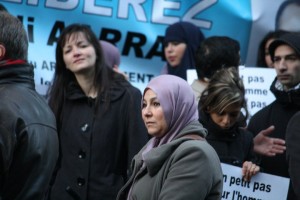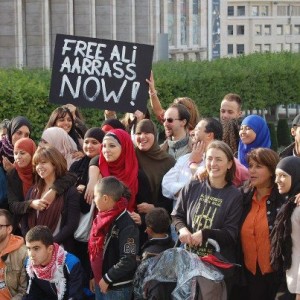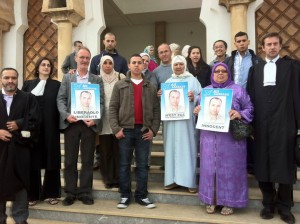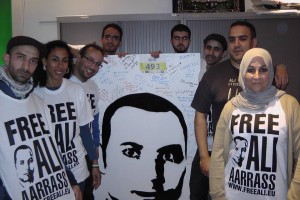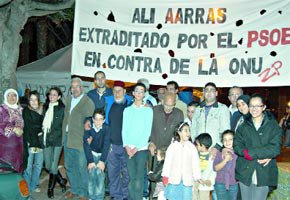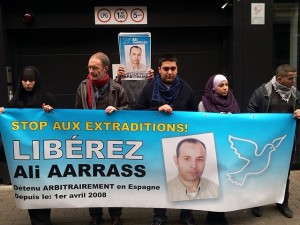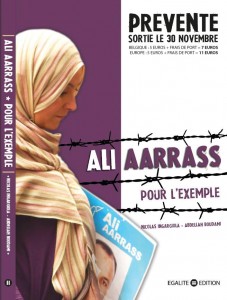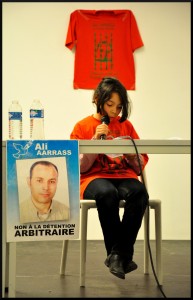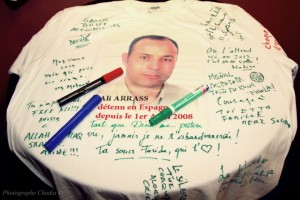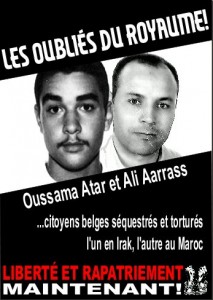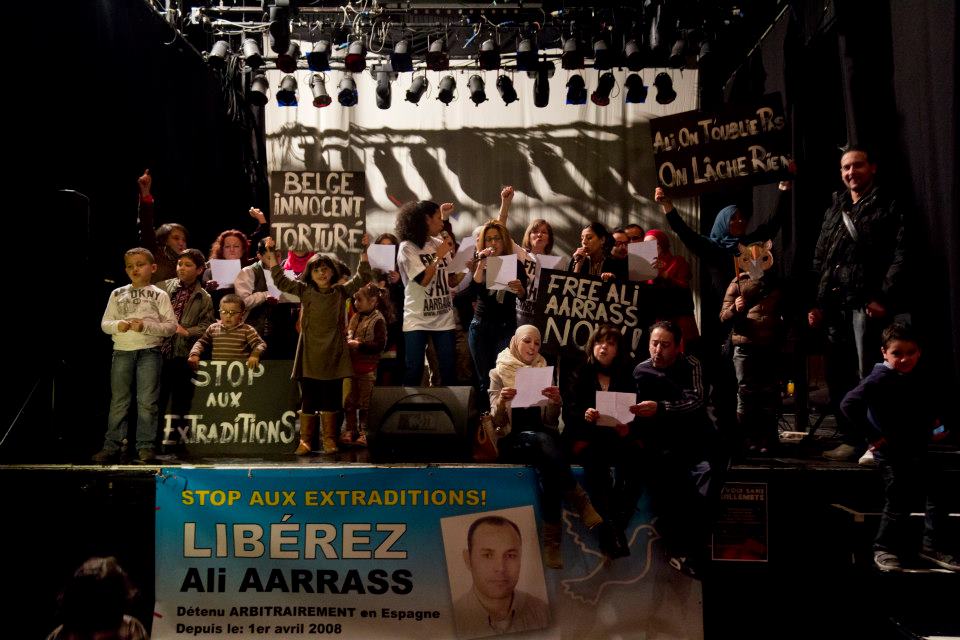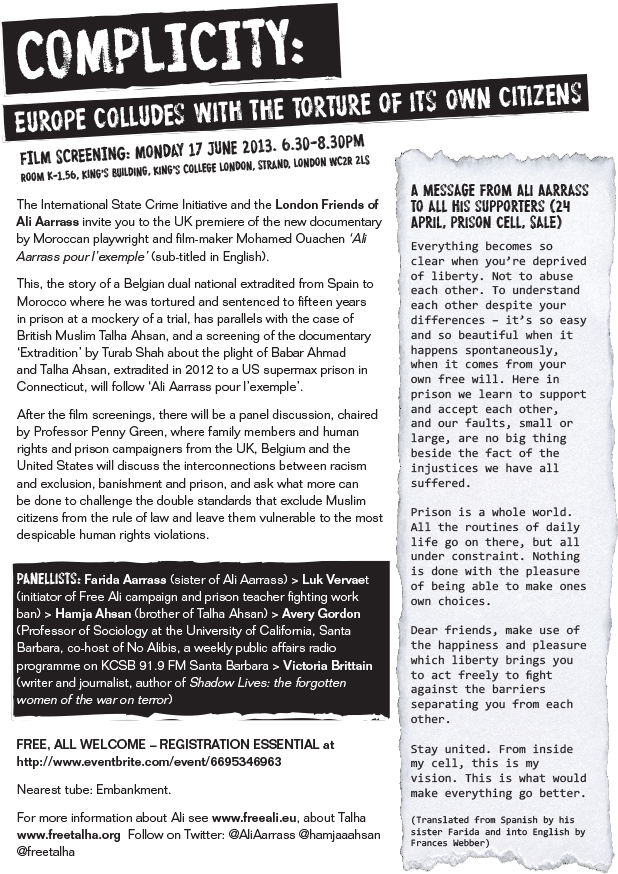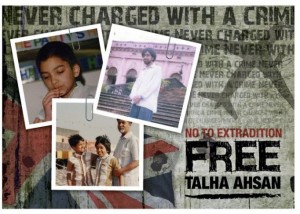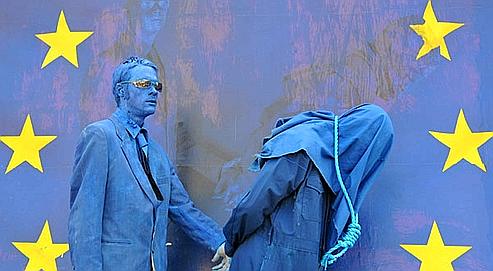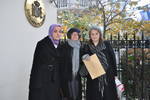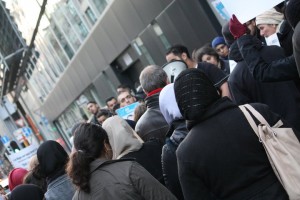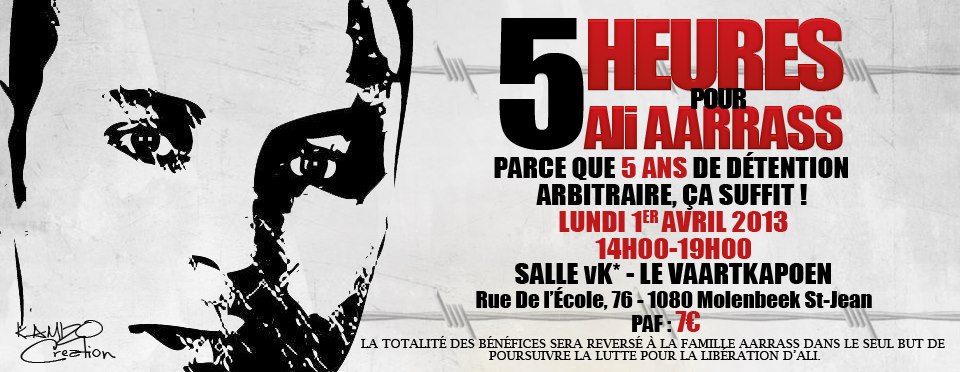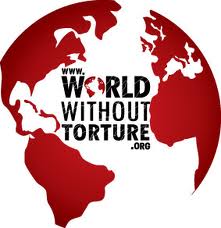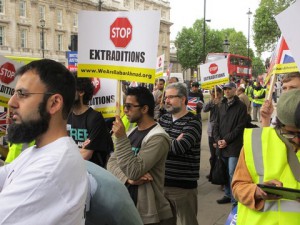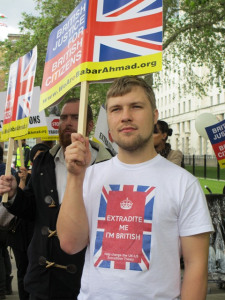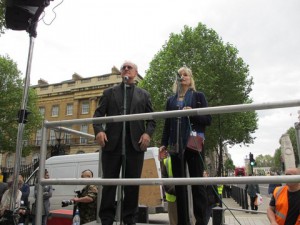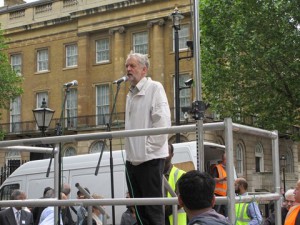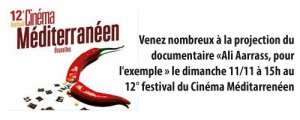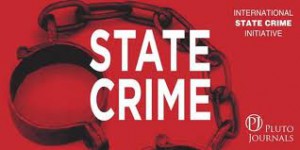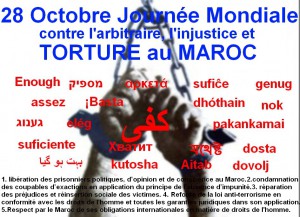Exclusive! The text of the report of UN Special Rapporteur Juan Méndez on Ali Aarrass
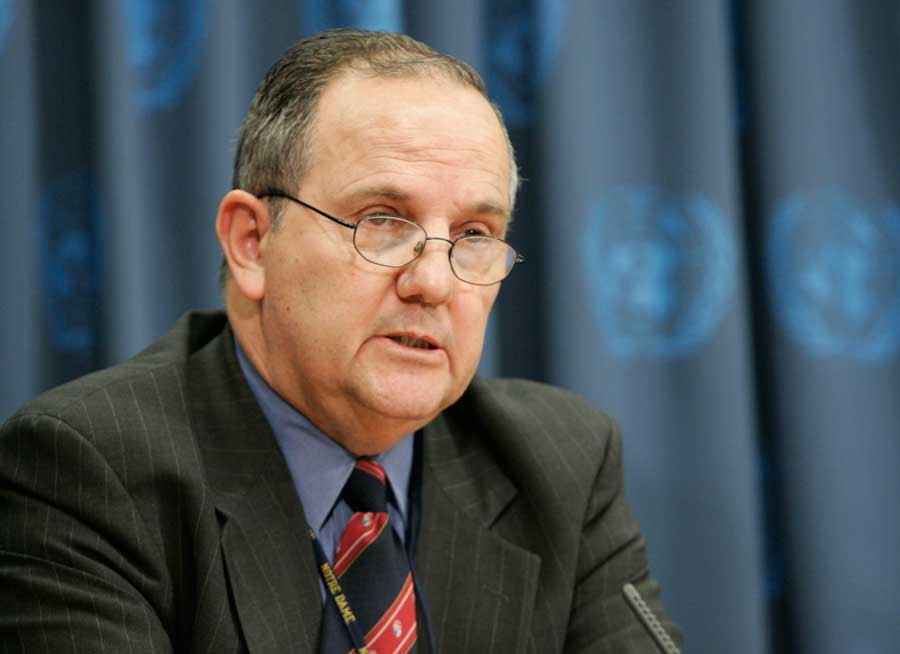
4 December 2012
Your excellency
I have the honour to address you in my capacity as Special Rapporteur on torture and other cruel, inhuman or degrading treatment, in accordance with resolution 16/23 of the human rights council.
In this context, I would like to draw the attention of your excellency’s government to the information I have received concerning allegations of torture and ill-treatment committed against Ali Aarrass. The information also concerns allegations regarding evidence obtained under torture during Mr Aarrass’s pre-trial detention; the Moroccan authorities’ failure to investigate; constant harrassment; refusal of appropriate medical treatment; and threats to Mr Aarrass after the Special Rapporteur’s visit to Morocco between 15 and 22 September 2012.
According to the information:
Mr Aarrass, aged 50, is a Belgian-Moroccan citizen currently held in Salé II prison in Morocco. Mr Aarrass was arrested in Spain on 1 April 2008 on a Moroccan extradition request relating to terrorism. On 19 November 2010, the Spanish Council of ministers approved Mr Aarrass’ extradition. On 26 November 2010 the UN human rights committee (ref. 2008/2010) requested the Spanish authorities to suspend the extradition. Mr Aarrass was extradited to Morocco on 14 December 2010.
On his arrival in Morocco, it is reported that Mr Aarrass was savagely tortured for ten days and subjected to other forms of cruel, inhuman and degrading treatment including rape, beatings and other humiliations, and was refused appropriate medical treatment during his preliminary detention. It is also indicated that Mr Aarrass admitted the allegations against him and signed a confession written by the authorities in Arabic, although his knowledge of this language is poor.
On 8 February 2011, Mr Aarrass told the examining magistrate, in the presence of a lawyer, that his confessions had been obtained by torture. On 2 May 2011, his lawyer submitted a complaint of torture of Mr Aarrass to the ministry of justice and the procurator general of Rabat. On 15 September 2011 the first-instance tribunal refused to open an investigation into the allegations of torture.
On 29 November 2011, the Moroccan court of first instance of Salé sentenced Mr Aarrass to 15 years’ imprisonment. It is alleged that this tribunal also failed to conduct a proper inquiry into the allegations of torture, despite numerous requests and despite an official penal complaint lodged by his advocate. It is also claimed that Mr Aarrass’ conviction rested solely on the confession evidence obtained under torture, rather than on any objective evidence of guilt. On Mr Aarrass’ appeal, the State proceeded to establish a medico-legal report on Mr Aarrass, on 8 December 2011. According to an independent medico-legal study of 13 June 2012, the report of 8 December 2011 and the medical examination conducted by the authorities were inadequate and did not comply with reasonable norms of diligence, independence and impartial inquiry relating to torture or other forms of cruel, inhuman or degrading treatment.
However, on 18 April 2012, in the course of the appeal process, the Rabat procurator-general decided to undertake no inquiry into Mr Aarrass’ allegations of torture.
It is reported that on 2 October 2012, the Rabat-Salé court of appeal upheld Mr Aarrass’ conviction, while reducing his sentence from 15 to 12 years. It is further alleged that the court of appeal would not hear the allegations of torture of Mr Aarrass and failed to consider the inadmissibility of evidence obtained under constraint. It is reported that the judge interrupted Mr Aarrass’ description of the torture he underwent, saying simply that Mr Aarrass had signed the confessions.
It is further stated that the court of appeal has still not put its decision on Mr Aarrass in writing.
On 20 September 2012, the Special Rapporteur on torture and other cruel, inhuman or degrading treatment or punishment met Mr Ali Aarrass at the Salé prison, shortly before the court of appeal gave its judgment.
The independent forensic medical expert who accompanied the Rapporteur conducted an external physical examination and found signs of torture on Mr Aarrass body. The forensic doctor concluded that the majority of marks, although not diagnostic, are clearly compatible with the treatment alleged by Mr Aarrass, such as cigarette burns, beatings on the soles of the feed, hanging by the wrists and electric shocks to the testicles. Further, he concluded that Mr Arrass’ description of the symptoms he suffered in the aftermath is totally compatible with the allegations, and that his description of the practices followed by the perpetrators is consistent with other testimonies, not known to Mr Aarrass, received by the Rapporteur in other detention sites. He has conclluded that some of these marks would become less visible with time and would disappear, such as those on the soles of the feet. He concluded that the State’s examination was conducted solely under artificial light.
According to the information we have received, Mr Aarrass was transferred to Salé II prison following his meeting with the Special Rapporteur. It is reported that a prison official, Mr Bouazza, harassed Mr Arrass that night, demanding details of the visit and the discussion. It is also indicated that, in response, Mr Aarrass lodged a complaint against the official with the prison authorities the following day, 21 September, and that on 22 September, the prison authorities threatened Mr Aarrass and put pressure on him to withdraw the complaint. It is reported that as a result of these threats and acts of intimidation, in particular by Mr Bouazza, assistant director of Salé II prison, Mr Aarrass withdrew his complaint. However, the harassment and threats continued. The latest information we received, on 12 November 2012, indicated that Mr Bouazza had threatened Mr Aarrass with rape, had said he would make his life in prison impossible and had removed the water heater Mr Aarrass used to heat water for washing.
Other prison staff implicated in the mistreatment of Mr Aarrass since his arrival at Salé II prison are Mustafa El Hajri, former director; Mohamed El Athimi, former assistant director; and Hamid Allali, nurse. It is reported that the new director promised to stop the harassment and ill-treatment and to improve Mr Aarrass’ conditions of detention. However, threats and harassment by prison staff have continued.
It is also claimed that the prison authorities continue to refuse requests for examination and appropriate medical treatment for Mr Aarrass. According to sources, Mr Aarrass suffers from a number of problems requiring immediate medical attention, such as a painful skin condition, epilepsy, haemorroids and dental problems. It is reported that medical staff at Salé II refuse to see Mr Aarrass unless he pays for the service.
Fears have been expressed that Mr Aarrass could become the object of torture or cruel treatment. Without wishing at this stage to pronounce on the information submitted to me, I would wish nevertheless to intervene with the government of Your Excellency to make clear the circumstances giving rise to the allegations above, in order that Mr Aarrass’ physical and mental integrity may be protected and respected, in accordance with the relevant articles of the Universal Declaration on Human Rights, the International Covenant on Civil and Political Rights, the Declaration on the protection of all persons against torture and other cruel, inhuman or degrading treatment or punishment and the Convention against Torture.
Regarding the allegations of acts of torture and ill-treatment against Mr Aarrass, I wish to draw Your Excellency’s government’s attention to paragraph 1 of resolution 16/23 of the Human Rights Council which ‘condemns all forms of torture and other cruel, inhuman or degrading treatment, including intimidation, which are and remain prohibited at all times and in all places, and which can never be justified, and invites all States to impose a full and absolute prohibition on torture and other cruel, inhuman or degrading treatment’.
Further, I wish to draw the attention of Your Excellency’s government to Article 15 of the Convention against Torture, which stipulates that ‘State parties shall ensure that any statement which is established to have been made as a result of torture shall not be invoked as evidence in any proceedings, except against a person accused of torture as evidence that the statement was made. ‘ The Assembly General reiterated this demand in paragraph 7 of its Resolution A/RES/61/153 of 14 February 2007.
I also wish to recall Article 12 of the Convention against torture, adopted by Morocco on 21 June 1993, which stipulates that ‘Each State Party shall ensure that its competent authorities proceed to a prompt and impartial investigation, wherever there is reasonable ground to believe that an act of torture has been committee in any territory under its jurisdiction,’ and Article 7, which requires that cases of torture are submitted to the competent authorities for penal action. I would also like to draw Your Excellency’s government’s attention to paragraph 3 of Resolution 8/8 of the human rights Council, which exhorts States ‘to take durable, decisive and effective measure to ensure that all allegations of torture or other cruel, inhuman or degrading treatment or punishment are examined promptly and impartially by the State’s competent authority and that those who encourage, order, tolerate or commit acts of torture, in particular those in charge of the place of detention where it is alleged that the acts were committed, are held responsible, brought to justice and severely punished, and to take note in this regard to the Principles relative to the methods of effective investigation into torture and other cruel, inhuman or degrading treatment or punishment, and to establish the truth of the facts (Istanbul Protocol) which can usefully contribute to the fight against torture.’ (6b)
Regarding the allegations of harassment and intimidation of Mr Aarrass following his meeting with the Special Rapporteur, I wish to recall that during his visit to Morocco the Special Rapporteur requested and received assurances from the authorities that clear instructions be sent to all levels of state power that neither intimidation nor any kind of reprisals would be tolerated.
In this regard, I would like to draw the attention of Your Excellency’s government to paragraph 7b of Resolution 8/8 of the Human Rights Council of June 2008, which reminded States that ‘Measures of intimidation or pressure connected to Article 1 of the Convention against torture, particularly serious and credible threats against the physical integrity of the victim or of a third person, and death threats, may in themselves constitute cruel, inhuman or degrading treatment or torture.’
Finally, I must remind Your Excellency’s government of Resolution 12/2 of the Human Rights Council (A/HRC/RES/12/2) which inter alia ‘condemns all acts of intimidation and reprisals on the part of governments and non-state actors against individuals and groups which seek to cooperate or have cooperated with human rights mechanisms’ (OP 2) and ‘invites all States to ensure adequate protection against acts of intimidation or reprisals for individuals and groups which seek to cooperate or have cooperated with the United Nations, its representatives and human rights mechanisms …’ (OP 3).
By virtue of the mandate conferred on me by the Human Rights Council, I must seek your cooperation in bringing to light the cases brought to my attention. With this obligation, in order to report these cases to the Council, I would be grateful to Your Excellency’s government for its observations on the following points:
1. Are the facts related in the summary of the case correct?
2. Please send the written decision of the Court of appeal of 2 October 2012, and state to what extent the allegations of torture were examined by prosecutors, examining magistrates and by the first-instance and appeal courts in the case of Mr Aarrass. Please submit details, and if applicable the results of any inquiries. If no inquiry took place, or if no conclusion was reached, please indicate the reasons.
3. Please indicate what measures are taken to ensure that statements obtained by torture are not used as evidence in judicial procedures, in accordance with Article 15 of the Convention against Torture.
4. Please submit all information on the measures taken to prevent further acts of harassment or ill-treatment of Mr Aarrass in prison. Could you also send details and, where available, results of inquiries into the recent acts of harassment and ill-treatment against Mr Aarrass after the Special Rapporteur’s visit. If no inquiry took place, please give reasons.
5. Please provide information on the measures which will be taken to ensure that Mr Aarrass immediately obtains adequate medical treatment. Please explain what measures have been taken to allow access to an independent doctor and why such a demand could be refused.
I would be grateful to receive your response to these questions within 60 days. Your response to each question will be reflected in the report which I will submit to the March 2013 session of the Human Rights Council.
In awaiting your response, I urge Your Excellency’s government to take all necessary measure to ensure the protection of Mr Aarrass’ rights and liberties, to use diligence in inquiring into violations committed and to bring those responsible to justice. I also urge Your Excellency’s government to adopt all necessary measures to prevent a repetition of the events described.
Assuring you of my consideration
Juan Méndez
Special Rapporteur on torture and cruel, inhuman or degrading treatment or punishment

